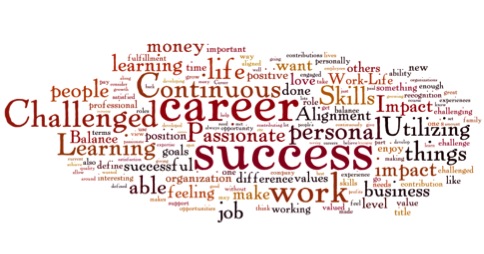
Earlier this week, I had the opportunity to meet with a new TrustedPeer Expert, Geoff McDonald. Geoff has a unique and well-developed philosophy on how employee wellbeing affects corporate growth, and it was a pleasure to hear his perspective. Here is how our discussion went:
Can you give me a quick download about your career background?
I worked at Unilever for twenty-five years; my most recent role being the Global Vice President of Human Resources for Marketing, Communications, Sustainability and Talent. At Unilever, my main goal has been to embed our purpose of making sustainable living commonplace into the core of the business, with healthy purposeful employees working to achieve this purpose, and in so doing, grow and deliver profits in a more responsible way.
How did you become so committed to this goal of purposeful business and the employee wellbeing?
In the last five years with the fall of Enron and other once respectable organizations/institutions and the financial crisis, companies are realizing they need to go back to their roots and think about why they exist beyond profitability. Organizations are looking for a purpose that will drive growth and profits in the future in a more responsible way. Despite the good intentions of capitalism, the system as we know it today has not served us well. Yes, there has been growth, which has been good for many, but it has left too much inequity and has not taken into account the physical and environmental limits of the planet. As a result, our capitalist society is suffering from a crisis of confidence and is fueled by debt.
Wealth isn’t evenly distributed. As of a few years ago, the top 1 percent of Americans owns 40 percent of wealth in the US. All this points to the lack of a social form of capitalism. A more modern take on capitalism—one that I would like to see—is one that takes into account the physical and environmental limits that we have on this planet, that taxes on consumption rather than income, and that isn’t addicted to short termism and growth. This more modern take on capitalism would also serve a moral purpose, and success would be just as much about the wellbeing of the employees as it is about the organization.
What is the best way to address this issue?
We need to create more purposeful organizations with wellbeing of employees at the core of these institutions. In so doing we will have to break the stigma around mental health issues by normalizing it. About one in five Americans will experience some mental health condition—the situation is much more common than we think. Therefore, we must ensure that there are ample resources to educate and improve the problem within organizations.
Do you have thoughts on the source of mental health issues?
Oftentimes, the source of anxiety and depression can be factors in the workplace. Simple acts of not giving feedback to employees regarding their performance on a regular basis can be a real source of stress, distress and at its worst, can lead to depression and anxiety. When you combine already-existing stress and demands with technology and the need to cut costs, the pressures are even higher. The New York Times article Why You Hate Work, documents that 87% of people today find their work disappointing, which leads to less productive work. Therefore, the competitive edge in the future might be to ensure that your employees are well in a holistic sense. In order to achieve this complete sense of well-being, we must focus on what The Energy Project calls the four levels of needs: physical (i.e. recharging your body through sleep, etc.), mental (i.e. your ability to focus), emotional (i.e. your level of happiness), and spiritual (i.e. your sense of purpose).
I hear that you will be meeting with Arianna Huffington, editor-in-chief of the The Huffington Post, this week. What will this meeting be about?
In her book Thrive, Arianna talks about well being as the third metric of success—so there are some parallels there. For me, the meeting with Arianna is exploratory. I am about to leave Unilever to try and build an institute to make purposeful business more commonplace, so I am excited to hear Arianna’s perspective on where we may find synergies.




